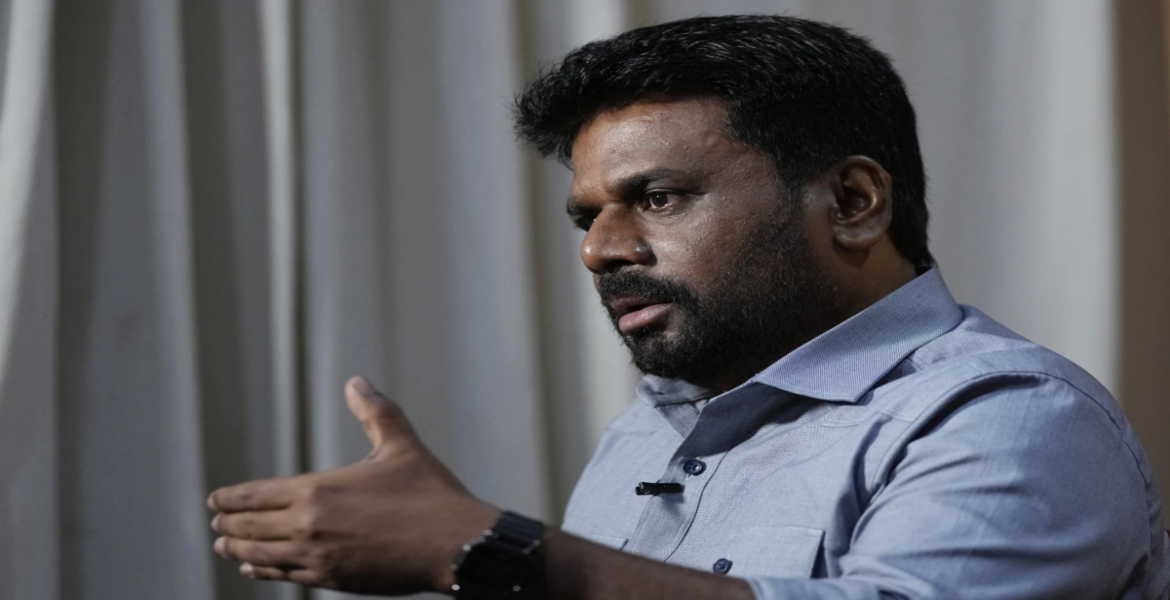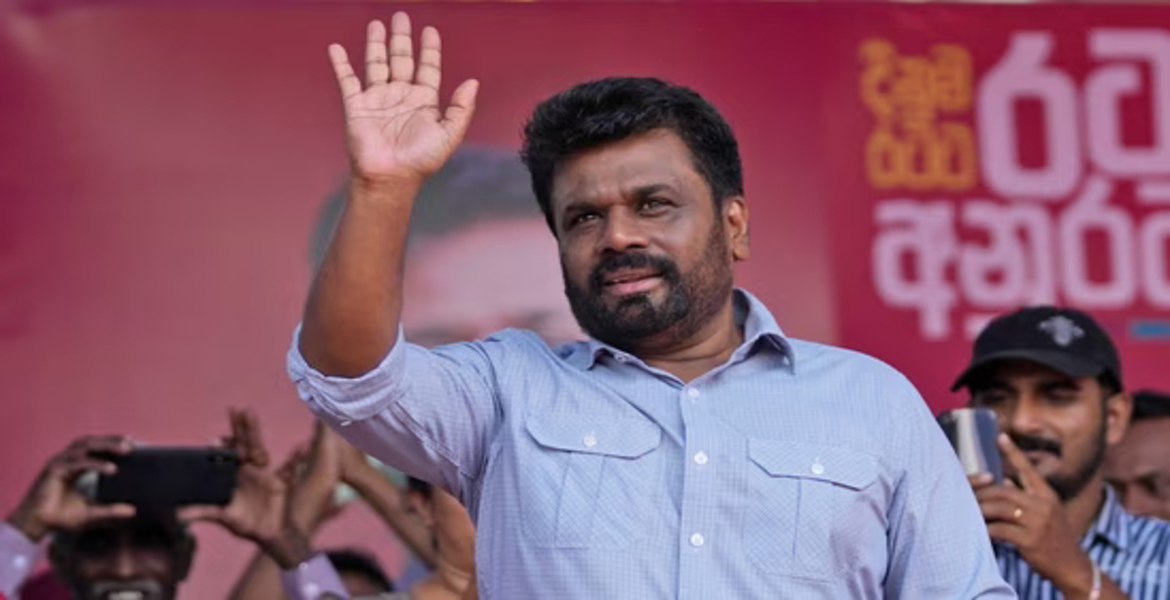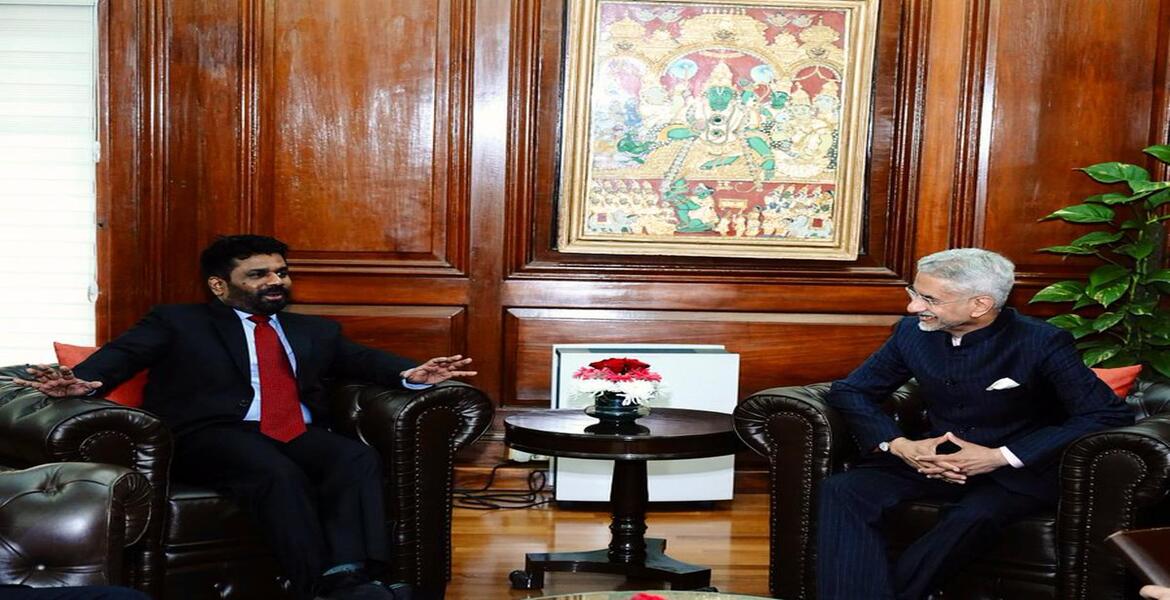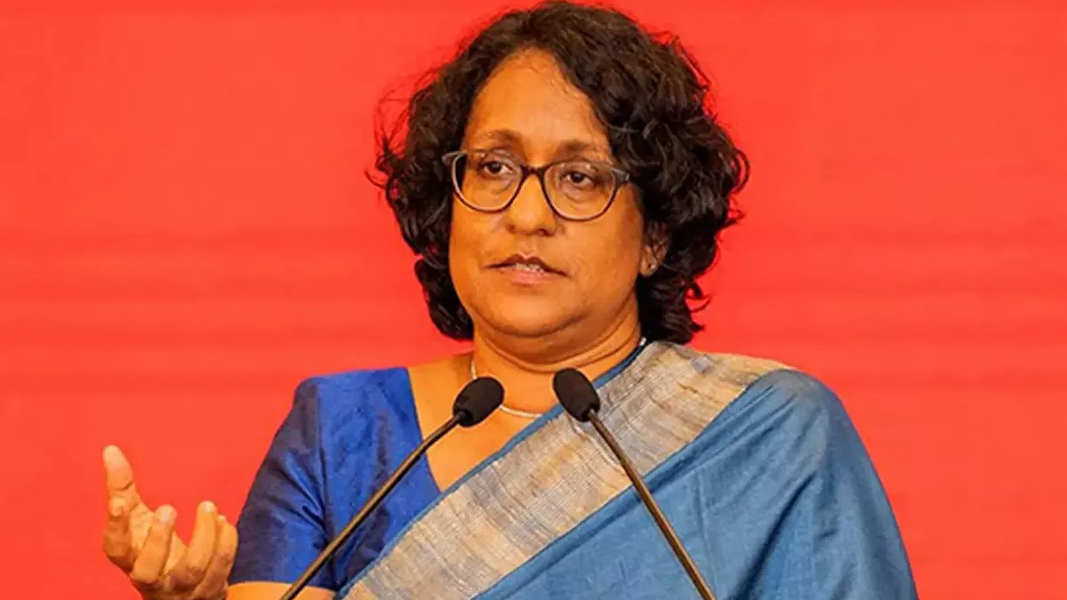. 25/09/2024 3:28 PM

“100% sure.” This was Anura Kumara Dissanayake’s confident response just days before the September 21 election when a journalist asked about his chances of winning. His calm demeanor reflected a deep-seated belief that he embodies the change Sri Lankans have been yearning for.
On September 21, Dissanayake was sworn in as Sri Lanka’s new president after leading the National People’s Power (NPP) coalition to victory, winning by a significant margin of 1.27 million votes over his closest competitor, Sajith Premadasa. Known as AKD, the 55-year-old leftist leader has a history steeped in political activism and a commitment to social justice.
Who is Anura Kumara Dissanayake?

Anura Kumara Dissanayake, commonly known as “AKD,” is the newly elected president of Sri Lanka and a prominent leader of the National People’s Power (NPP) coalition. Born on November 24, 1968, into a modest farming family in Anuradhapura, his political journey began in the late 1980s through student activism with the Janatha Vimukthi Peramuna (JVP), a Marxist-Leninist party.
What led to his rise in politics?
Dissanayake's early life was marked by tragedy; the violent crackdown on JVP members during the late 1980s deeply influenced his political beliefs. His cousin’s death during this period propelled him into activism, ultimately leading him to take on leadership roles within the JVP. After years of struggle, he became the party leader in 2014 and shifted its focus towards a more reformist agenda.
Key Chronology of Dissanayake’s Political Journey
1968: Born in Anuradhapura, Sri Lanka, into a modest family.
1987: Joins the JVP's student wing during a period of intense political violence.
2000: Elected to Parliament as an MP for the JVP.
2004-2005: Serves as Minister of Agriculture under President Chandrika Kumaratunga.
2014: Becomes the leader of the JVP, begins to apologize for past violence associated with the party.
2019: Runs for president but garners only 3.2% of the votes.
2022: Plays a significant role in the Janatha Aragalaya movement, advocating for systemic change.
September 21, 2024: Elected as president with 42.31% of the vote, marking a significant political pivot for Sri Lanka.
How did the 2022 economic crisis influence his election?
The 2022 economic crisis, which saw Sri Lanka nearly bankrupt and facing severe shortages of essential goods, catalyzed public disillusionment with traditional political leaders. Dissanayake’s NPP capitalized on this discontent during the Janatha Aragalaya movement, which called for systemic change. His promises of transparency and accountability resonated with voters seeking an alternative to the entrenched political elite.
What are his core promises for Sri Lanka?
Upon taking office, Dissanayake pledged to:
Combat Corruption: He aims to foster a cleaner political culture by increasing transparency in governance and holding previous leaders accountable for corruption.
Economic Recovery: Dissanayake plans to stabilize the economy by focusing on key sectors such as agriculture, information technology, and tourism, as well as renegotiating the terms of the International Monetary Fund (IMF) loans to reduce austerity measures.
Social Justice: He emphasizes addressing systemic inequalities, particularly for marginalized communities, including the Tamil population and those affected by economic hardship.
Job Creation: Dissanayake promises to create employment opportunities through investments in infrastructure and local industries, aiming to uplift the living standards of the populace.
Education and Health Reforms: He advocates for improvements in the education and health sectors to ensure better access and quality for all citizens, focusing on the needs of underserved communities.
Environmental Sustainability: Dissanayake has committed to sustainable development practices that protect Sri Lanka’s natural resources and biodiversity.
Balanced Foreign Relations: He intends to maintain a neutral foreign policy, fostering balanced relationships with both China and India, while also engaging with the EU, Middle East, and Africa.
What is Dissanayake's ideological stance?
Dissanayake’s ideology is rooted in leftist principles, shaped by his long affiliation with the JVP. Traditionally a Marxist-Leninist party, the JVP has evolved under Dissanayake's leadership to adopt a more pragmatic and reform-oriented approach. This shift is characterized by:
Anti-Corruption Focus: Dissanayake’s political narrative emphasizes fighting corruption, which he views as a fundamental barrier to development and equality.
Economic Socialism with a Human Face: He promotes a model of socialism that seeks to address the needs of the people rather than adhering strictly to ideological tenets. This involves a mix of state intervention in the economy while promoting private enterprise and foreign investment.
Inclusive Governance: Acknowledging past grievances, especially concerning ethnic minorities, Dissanayake emphasizes the importance of inclusivity and reconciliation, aiming to build bridges between different communities in Sri Lanka.
Environmental Concerns: He integrates environmental sustainability into his ideology, recognizing the importance of protecting natural resources in the face of economic development.
This ideological evolution reflects Dissanayake's understanding that traditional Marxist approaches may not resonate with the broader electorate. By adopting a more inclusive and reform-minded stance, he aims to appeal to a wider demographic while maintaining the core values of social justice and equity.
What challenges does he face?
Dissanayake faces multiple challenges:
Economic Crisis: Sri Lanka's €34 billion debt and rising poverty levels present significant hurdles.
Political Polarization: Although he has promised to reach out to various communities, historical tensions—particularly with the Tamil population—persist.
Expectations for Change: With his election representing a departure from traditional leadership, public expectations for rapid reform are high.
How does his leadership style differ from previous leaders?
Dissanayake’s leadership style is marked by a collaborative approach, valuing collective input and fostering dialogue. His calm demeanor and ability to articulate complex issues have made him a relatable figure for many Sri Lankans. This contrasts with the more authoritarian styles often associated with previous leaders.
What is the assessment of Dissanayake's potential as president?
Dissanayake’s election signals a critical moment in Sri Lankan politics. His background in leftist politics, combined with a shift towards reformist policies, positions him uniquely to address the nation’s challenges. However, his success will largely depend on his ability to navigate the economic crisis while uniting a deeply divided populace. Critics may question his past associations with the JVP's violent history, but his current focus on transparency and accountability may help him gain broader acceptance.
What does the future hold for Dissanayake and Sri Lanka?
As he embarks on this new chapter, Dissanayake’s ability to navigate economic recovery while fostering national unity will be crucial. His administration’s success in implementing reforms and addressing public grievances will determine whether his presidency can truly represent a “new era of renaissance” for Sri Lanka. The coming months will be pivotal as he works to transform public aspirations into tangible outcomes.
What is His Stance on India?

Dissanayake’s presidency marks a potential shift in Sri Lanka’s foreign relations, particularly with India. Historically, the JVP has held a skeptical view of foreign intervention, especially regarding India’s influence in Sri Lankan affairs. However, Dissanayake recognizes the importance of maintaining a stable relationship with India, given their geographical proximity and economic ties.
His administration is likely to pursue a balanced approach that seeks to enhance cooperation with India while asserting Sri Lanka's sovereignty. Dissanayake has already received congratulations from Indian officials, suggesting a willingness to engage constructively with neighboring countries.

Harini Amarasuriya has been appointed as Sri Lanka's new Prime Minister, making her the third woman to hold this position in the country's history. A college professor and first-time lawmaker, she is part of the National People’s Power (NPP) coalition and will oversee key portfolios, including Foreign Affairs, Education, and Media.